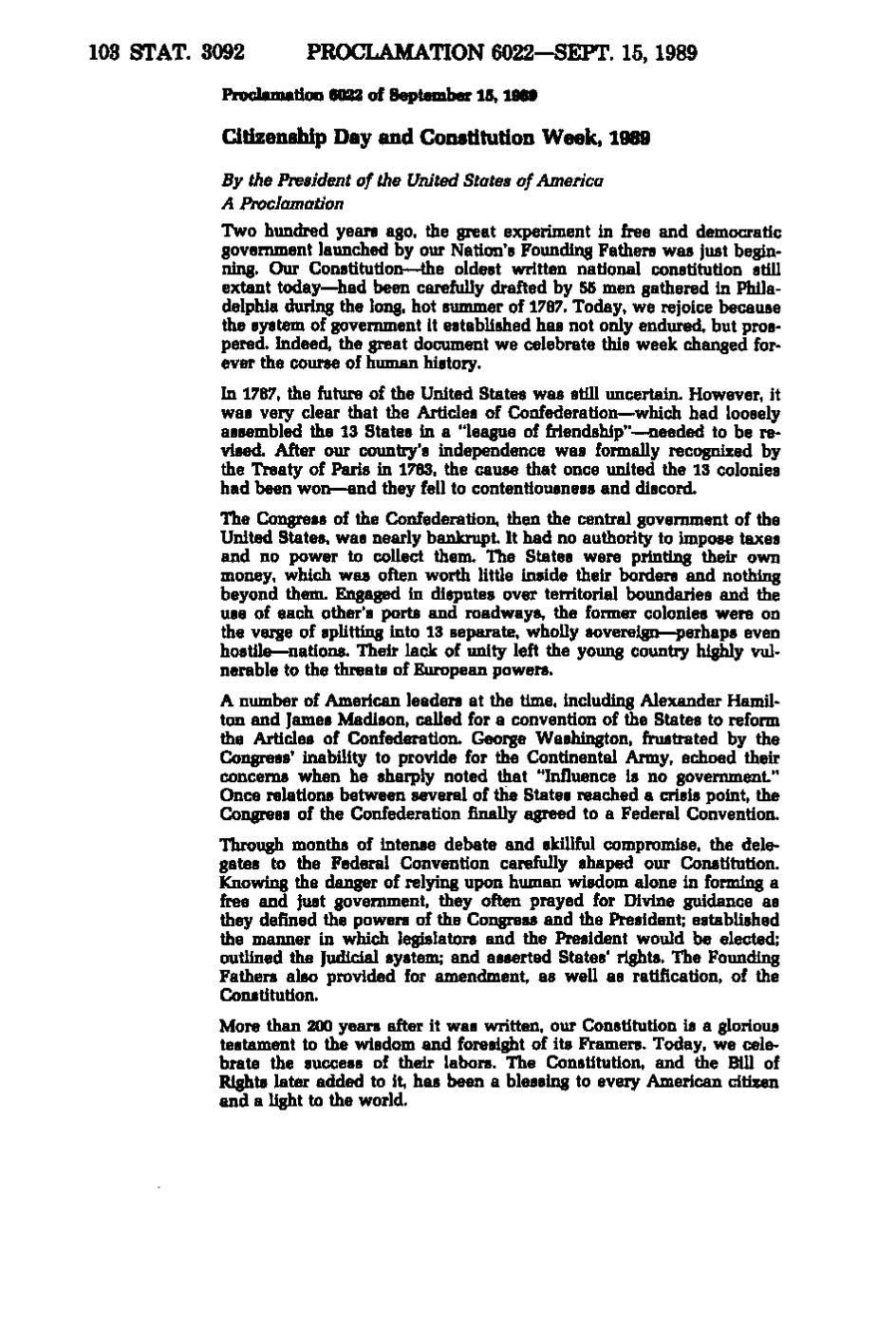103 STAT. 3092 PROCLAMATION 6022—SEPT. 15, 1989 Proclamation 6022 of September 15, 1989 Citizenship Day and Constitution Week, 1989 By the President of the United States of America A Proclamation Two hundred years ago, the great experiment in free and democratic govenmient launched by our Nation's Founding Fathers was just begin- ning. Our Constitution—the oldest written national constitution still extant today—^had been carefully drafted by 55 men gathered in Phila- delphia during the long, hot summer of 1787. Today, we rejoice because the system of government it established has not only endured, but pros- pered. Indeed, the great document we celebrate this week changed for- ever the course of human history. In 1787, the future of the United States was still uncertain. However, it was very clear that the Articles of Confederation—^which had loosely assembled the 13 States in a "league offriendship"—^neededto be re- vised. After our country's independence was formally recognized by the Treaty of Paris in 1783, the cause that once united the 13 colonies had been won—and they fell to contentiousness and discord. The Congress of the Confederation, then the central government of the United States, was nearly bankrupt. It had no authority to impose taxes and no power to collect them. The States were printing their own money, which was often worth little inside their borders and nothing beyond them. Engaged in disputes over territorial boundaries and the use of each other's ports and roadways, the former colonies were on the verge of splitting into 13 separate, wholly sovereign—^perhaps even hostile—^nations. Their lack of unity left the young country highly vul- nerable to the threats of European powers. A number of American leaders at the time, including Alexander Hamil- ton and James Madison, called for a convention of the States to reform the Articles of Confederation. George Washington, frustrated by the Congress' inability to provide for the Continental Army, echoed their concerns when he sharply noted that "Influence is no government." Once relations between several of the States reached a crisis point, the Congress of the Confederation finally agreed to a Federal Convention. Through months of intense debate and skillful compromise, the dele- gates to the Federal Convention carefully shaped our Constitution. Knowing the danger of relying upon human wisdom alone in forming a free and just government, they often prayed for Divine guidance as they defined the powers of the Congress and the President; established the manner in which legislators and the President would be elected; outlined the Judicial system; and asserted States' rights. The Founding Fathers also provided for amendment, as well as ratification, of the Constitution. More than 200 years after it was written, our Constitution is a glorious testament to the wisdom and foresight of its Framers. Today, we cele- brate the success of their labors. The Constitution, and the Bill of Rights later added to it, has been a blessing to every American citizen and a light to the world.
�
